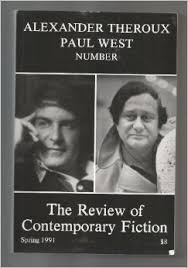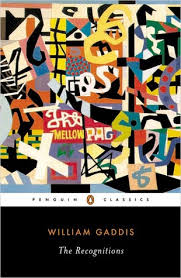Steven Moore is the author of two essential works on the history of the novel: The Novel: An Alternative History , the first one covering the beginnings to 1600 and the second one 1600 to 1800. Both will tell you far more than you ever knew about the history of the novel, not in an academic, dry-as-a-dust manner (that bloodless, wooden mode as he describes it) but with a well-written, clear approach, (colourful, lively writing, prose that is witty and actually fun to read rather than a chore, as he calls it) while, at the same time, giving a whole host of fascinating information about the early novel. I (and many other people) rather hoped he would continue into the modern era in his novel series but he has declined to do so, saying he is more interested in reading books than writing them.

However, all is not lost. We now have another large work which, as the title suggests, is a collection of his various occasional writings. In his past life, he worked for the Dalkey Archive Press and its associated publication (now defunct) The Review of Contemporary Fiction (RCF). Many of the articles in this work are his reviews of book published in the RCF, as well as those published elsewhere, particularly in the Washington Post where he was a long time freelance book reviewer. The book also includes quite a few essays, both published and unpublished, on topics literary.

Moore starts the book with a brief description of his life – running a bookstore in Denver, writing a book, reviewing and working for Dalkey. Where it becomes interesting is in discussing his interests, which seems to be mainly though certainly not exclusively centred around 20th US fiction, particularly more experimental fiction. While Joyce may have been his first love, it is clear that William Gaddis is his second. As I was, he was stunningly impressed by Gaddis’ The Recognitions. The book contains both reviews of Gaddis’ works and a collection of essays on him. His other great interests are authors like Gaddis, often called difficult, experimental and certainly not best-sellers. Some of them he has discovered as I and many other readers have done, by following a trail from one writer to another.
His reviewing philosophy is one I can wholeheartedly endorse and one I hope that I practise on my website/blog: I’ve always regarded book reviews as consumer advisory reports more than nuanced evaluations. Naturally, he has used his reviews to promote authors he considers worthy of promotion.
Reading a book like this, you look out for books that seem worthy that you do not know, books that you do know to see if his opinion is (more or less) the same as yours and to be reminded of books that you have read and forgotten (or almost forgotten) or, in my case, that you have bought and somehow never got round to reading. There are all too many in all categories. Inevitably, I found mention of novels that I was unaware of but also quite a few buried in the recesses of my library that I should bring out into the sunlight. Some of his recommendations, particularly of US novelists, are of works that seemed very relevant and interesting at the time, so I bought them, in some cases read them, but have since forgotten them. Reading his reviews makes me realise that many of them are worthy of closer attention.
Moore does not hold back his views. There is a review of Richard Ford’s stories, for example, which all have an old-fashioned tone, as if they had been written 50 years ago. He quotes Paul West who has no patience for what he variously calls “mercantile novelists”, “literacy greengrocers”, “antiquarians who keep on trying to invent the nineteenth-century novel in the age of quasars”. it is clear that Moore shares West’s views.

The final section, consisting of his essays, covers several authors that he clearly seems to admire, including Gaddis and Joyce but some less well-known writers who should be better known. I have several books by Alexander Theroux and Brigid Brophy but have yet to get round to them. Slaughterhouse Five: A Poor Man’s Remembrance of Things Past, is something of a provocative title (you have to read his essay to see his rationale, though I am not convinced that I entirely share it). I know of W M Spackman (Moore has edited his Complete Novels), Carole Maso and Edward Dahlberg but have yet to read them. I must admit that I had not head of Alan Ansen, a Beat writer and that Sheri Martinelli and, Chandler Brossard and Jack Green are little more than just names for me. I have read David Markson and Richard Brautigan and did not take to either. Like Moore, I loved Adán Buenosayres (Adam Buenosayres).

The book ends with three essays. One is on his nympholepsy (no, I hadn’t heard of it either). The second is something you will be aware of, if you have read his two books on the novel. It tells us that, just as he used to think Columbus discovered America, he used to think (was told) that the novel was invented by Samuel Richardson in the eighteenth century. It was not, of course. It is just that many critics had a very narrow view of what the novel is. In this essay (and subsequently in his first book on the novel) he gives numerous examples of novels written (and known) well before Richardson was born. The final essay is on publishing Rikki Ducornet, another writer I know of but have never read. (Oh dear, my TBR pile has grown substantially again.). Whether you know of or have read Ducornet, it is a fascinating essay on the publishing process, at least as regards a small press.
Whoever you are and however much you have read, it is almost certain that, in reading this book you are going to learn about new authors and learn a lot about the twentieth/twenty-first novel. I spent a long time immersed in this book. Sadly, very sadly, Moore is not going to write another book in his history of the novel series but, at least, this is a really worthwhile book and anyone who is interested in the modern novel should buy it at once.